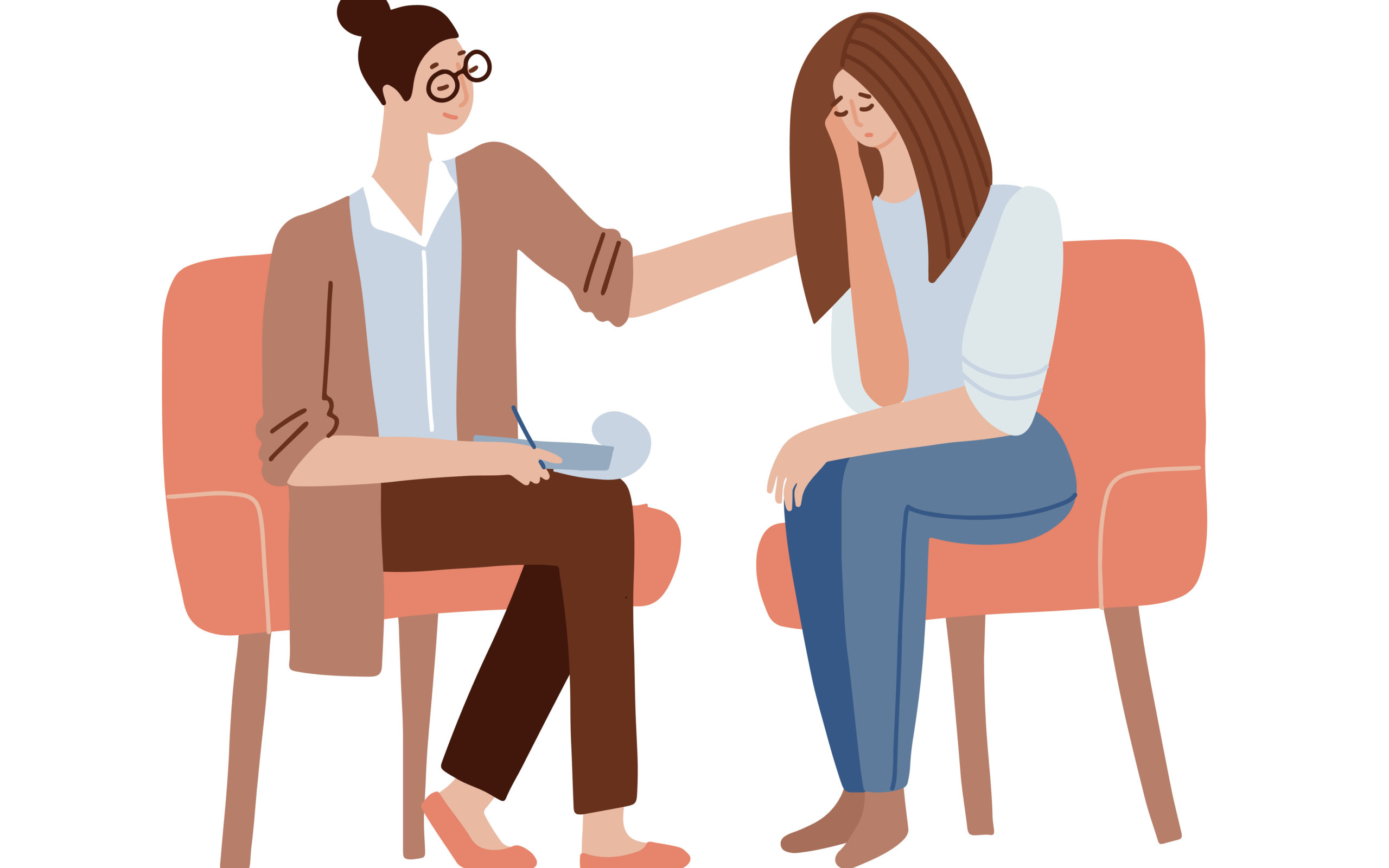What to Anticipate When Visiting the Best Psychologist in Delhi for Therapy
What to Anticipate When Visiting the Best Psychologist in Delhi for Therapy
Blog Article
Psych Treatment: A Comprehensive Guide to Outcomes and techniques

Cognitive-Behavioral Treatment
Cognitive-Behavioral Therapy (CBT) is a widely utilized psychotherapeutic technique that concentrates on determining and customizing dysfunctional reasoning and habits patterns. Established in the 1960s by Aaron T. Beck, CBT combines cognitive and behavior concepts to attend to various psychological health and wellness issues, consisting of anxiety, anxiety, and stress-related conditions. The premise of CBT is that maladaptive ideas contribute to psychological distress and maladaptive actions. By reorganizing these thoughts, individuals can achieve significant enhancements in their psychological wellness and everyday functioning.
CBT is defined by its organized, goal-oriented nature. Therapy commonly entails a collaborative procedure in between the therapist and client, where details issues are identified, and sensible techniques are created to resolve them. Methods such as cognitive restructuring, exposure therapy, and skill-building exercises are frequently used. Cognitive restructuring entails tough and changing negative idea patterns, while exposure therapy intends to lower anxiety and anxiety through gradual direct exposure to feared situations or items.
Evidence-based research sustains the efficiency of CBT for a variety of psychological conditions - Best Psychologist in Delhi. Its emphasis on ability procurement and self-help strategies encourages clients to proceed progression separately after treatment ends. The adaptability and performance of CBT have made it a cornerstone in contemporary psychotherapeutic method
Psychodynamic Methods
Rooted in the very early concepts of Sigmund Freud, psychodynamic methods concentrate on checking out the unconscious mind and its influence on habits and feelings. These methods intend to discover hidden ideas and sensations that may be driving maladaptive actions and mental distress. Central to this approach is the idea of internal problem, often originating from unresolved previous experiences, specifically those from childhood years.
Therapists making use of psychodynamic techniques utilize several crucial approaches, consisting of free organization, where patients are motivated to speak openly to reveal unconscious product, and dream evaluation, which analyzes the latent content of desires. In addition, the exploration of transference and countertransference characteristics within the healing relationship is vital. These interactions can give insights into the individual's internal world and relational patterns.
Psychodynamic therapy is normally longer-term compared to other techniques, using a thorough and deep understanding of the person's psyche. Research study shows that it can be especially effective for intricate psychological health problems, such as character conditions and persistent clinical depression. By fostering self-awareness and psychological understanding, psychodynamic therapy looks for to bring unconscious material to awareness, allowing people to accomplish long lasting and purposeful adjustment in their lives.
Humanistic Techniques
Structure on the structures laid by psychodynamic techniques, humanistic methods supply a distinctive point of view concentrated on private prospective and self-actualization. Coming from in the mid-20th century, these techniques focus on the integral benefits and development possibility of individuals, highlighting a holistic view of human experience. Trick figures such as Carl Rogers and Abraham Maslow have substantially influenced this therapeutic approach, which incorporates techniques like client-centered therapy and Gestalt treatment.
Client-centered therapy, developed by Rogers, plays a critical duty in humanistic methods. The specialist's function is more of a facilitator than an authority, urging clients to harness their internal resources for recovery.
Gestalt therapy, one more vital humanistic technique, highlights existing moment recognition and the combination of mind and body. By focusing on the "present moment," customers acquire better insight right into their present feelings and actions. Methods such as role-playing and guided visualization are usually utilized to aid clients obtain a deeper understanding of themselves, ultimately bring about improved self-awareness and fulfillment.
Integrative Therapies
Integrative treatments stand for a synthesis of various healing strategies customized to satisfy the unique requirements of each customer. This technique acknowledges the intricacy of human psychology and the diverse nature of psychological health and wellness concerns. By combining elements from different colleges of psychiatric therapy-- such as cognitive-behavioral therapy (CBT), psychodynamic therapy, and humanistic approaches-- integrative treatments offer a more holistic and versatile therapy standard.
Practitioners of integrative therapy evaluate each client's certain requirements, symptoms, and personal history to create a personalized treatment plan. This personalized technique improves the capacity for therapeutic success by attending to the source of psychological distress and advertising overall well-being. Strategies could consist of mindfulness workouts, cognitive restructuring, and emotional processing, each picked to target various facets of the customer's problems.
Moreover, integrative treatments stress the restorative relationship, viewing the client-therapist bond as a critical part of efficient treatment. This relationship cultivates a helpful atmosphere where clients really feel risk-free to explore and address their problems. The versatility of integrative treatments makes them appropriate for a broad array like it of conditions, including anxiousness, anxiety, trauma, and social problems, thus increasing their applicability and performance in diverse scientific settings.

Gauging Treatment Results
Assessing the performance of psychotherapy is crucial for both customers and medical professionals to make sure that the therapy is generating the preferred content end results. To accomplish this, different methods and devices are employed to gauge therapy results methodically. Standardized analysis tools, such as the Beck Clinical Depression Inventory (BDI) and the Generalized Stress And Anxiety Problem 7 (GAD-7), provide measurable data on sign seriousness and adjustments gradually.
Along with standardized devices, qualitative methods like customer self-reports and medical meetings provide beneficial insights right into the individual experiences and perceived development of customers. On a regular basis scheduled analyses, generally at the beginning, midpoint, and end of treatment, aid in tracking the trajectory of improvement or identifying locations needing modification.
Result measurement is not restricted to signs and symptom decrease; it additionally incorporates functional enhancements in day-to-day life, such as far better interpersonal partnerships, increased work productivity, and enhanced general well-being. Modern developments in digital health have actually presented mobile applications and on-line systems that facilitate real-time tracking and comments, even more fine-tuning the evaluation procedure.
Inevitably, a thorough strategy to gauging therapy results guarantees that restorative treatments work, efficient, and tailored to fulfill the individual requirements of clients, consequently maximizing the total healing experience.
Verdict
Psychiatric therapy uses a complex array of strategies intended at attending to details psychological health and wellness problems and enhancing overall well-being. Cognitive-Behavioral Therapy and psychodynamic approaches target useless ideas and subconscious influences, respectively. Humanistic strategies concentrate on individual development and self-actualization, while integrative treatments combine numerous methods for customized treatment plans. Reviewing therapy outcomes via standard evaluations and qualitative techniques makes sure a detailed understanding of performance, eventually guiding customers toward enduring psychological health renovations.
From the structured method of this post Cognitive-Behavioral Therapy (CBT) to the deep exploration of the unconscious in psychodynamic therapy, each technique brings distinct advantages. Its focus on ability purchase and self-help methods encourages clients to continue progression individually after therapy wraps up (Best Psychologist in Delhi). Key numbers such as Carl Rogers and Abraham Maslow have substantially affected this restorative approach, which includes approaches like client-centered treatment and Gestalt therapy

Report this page